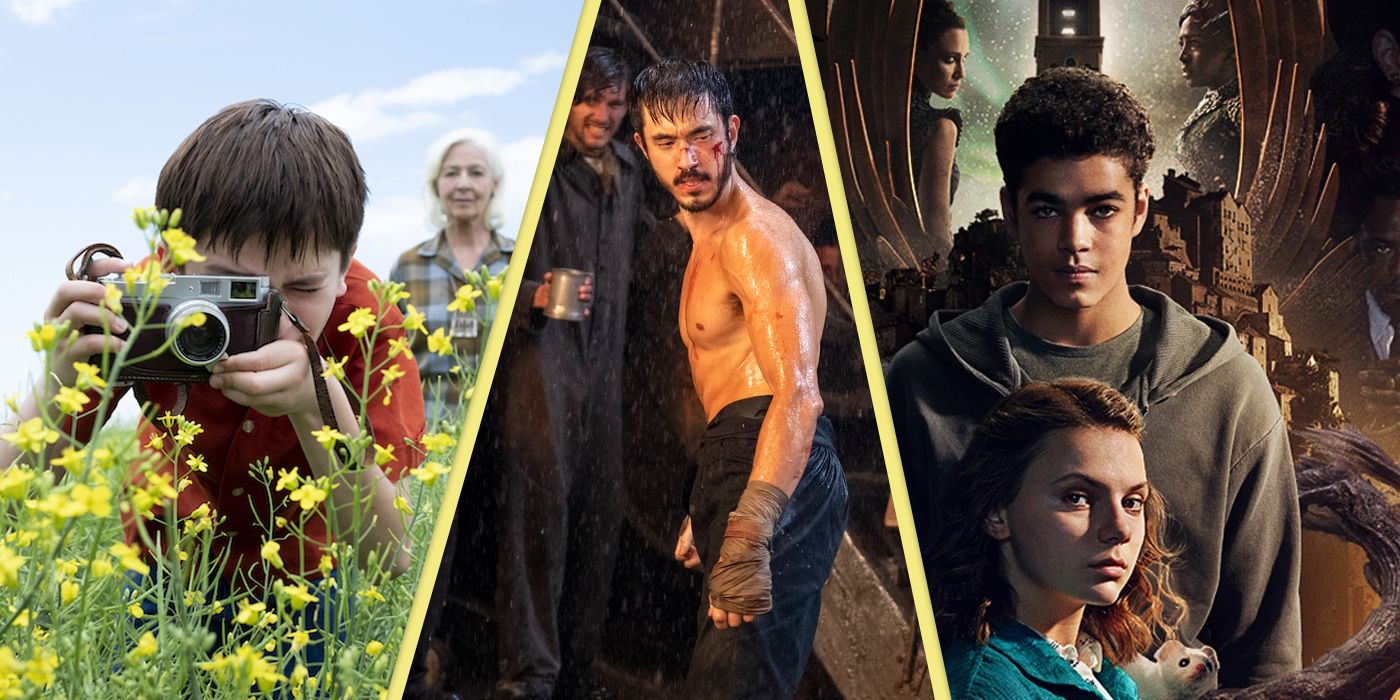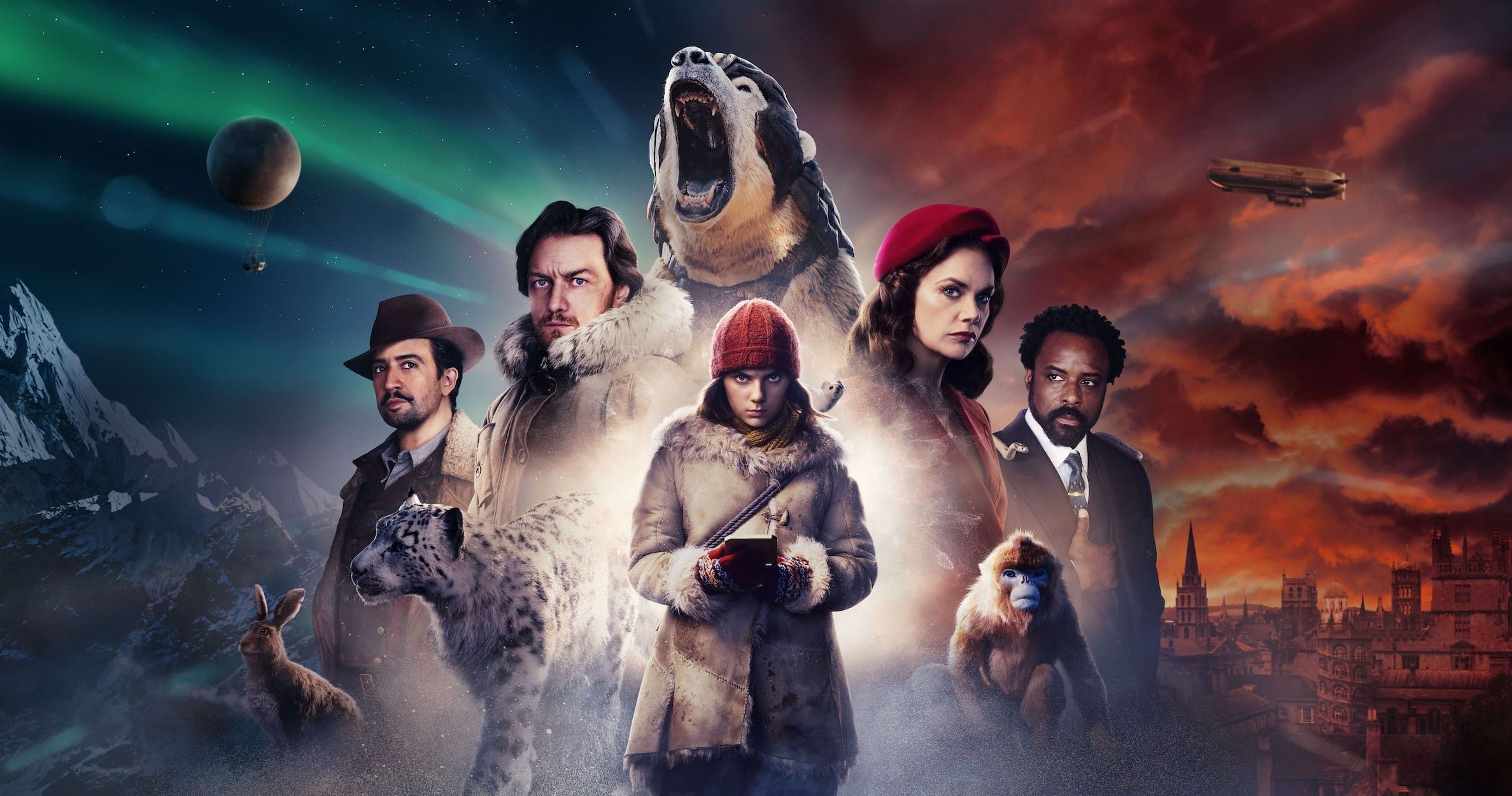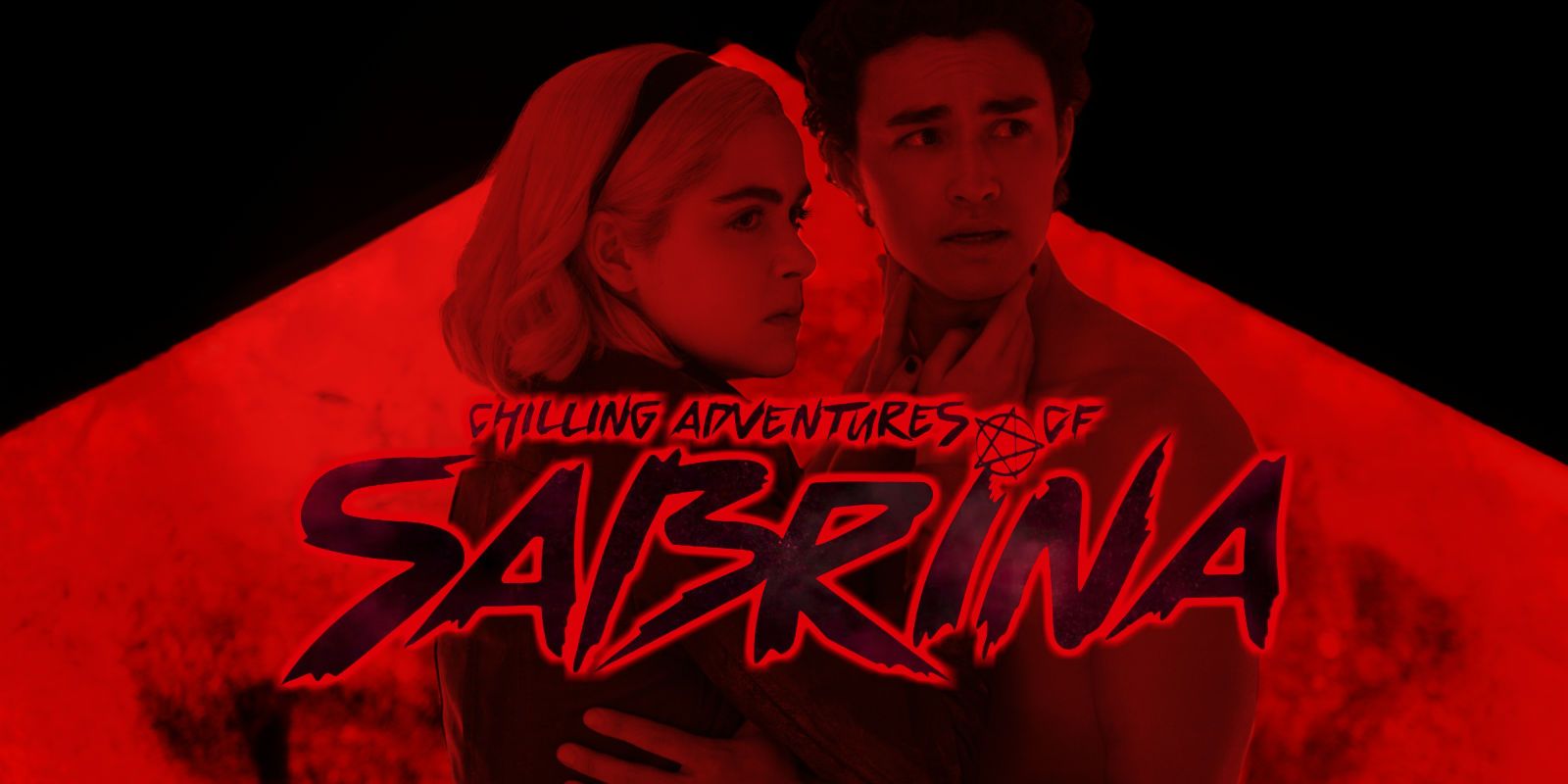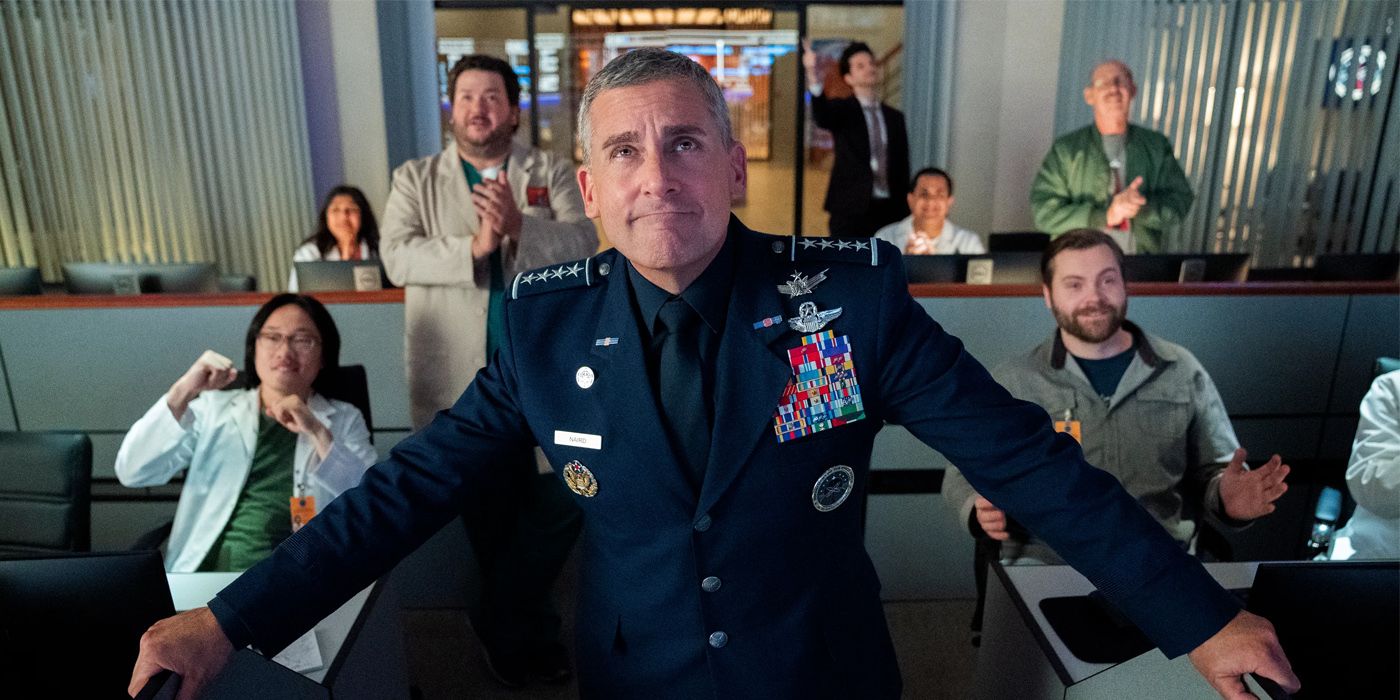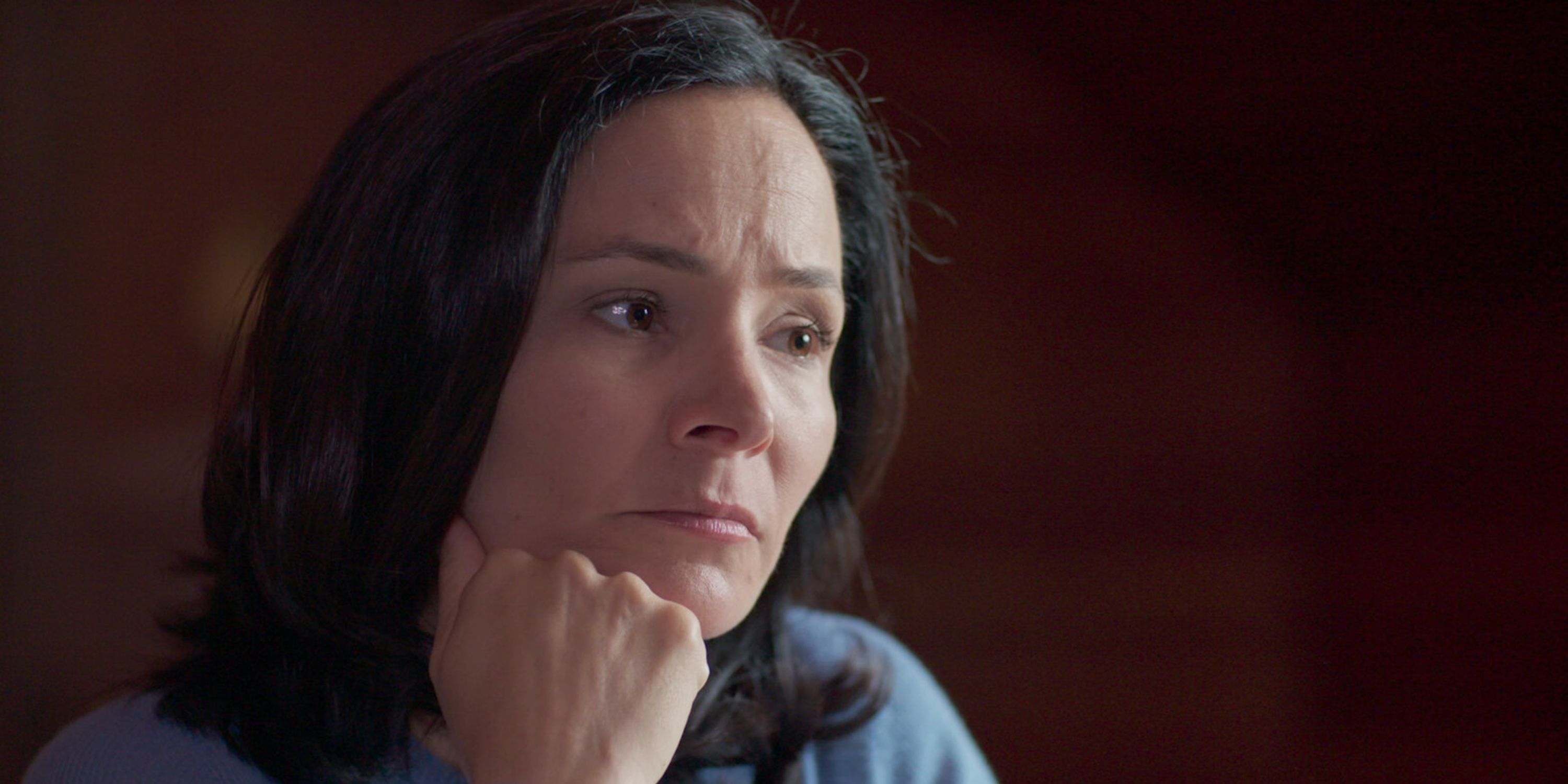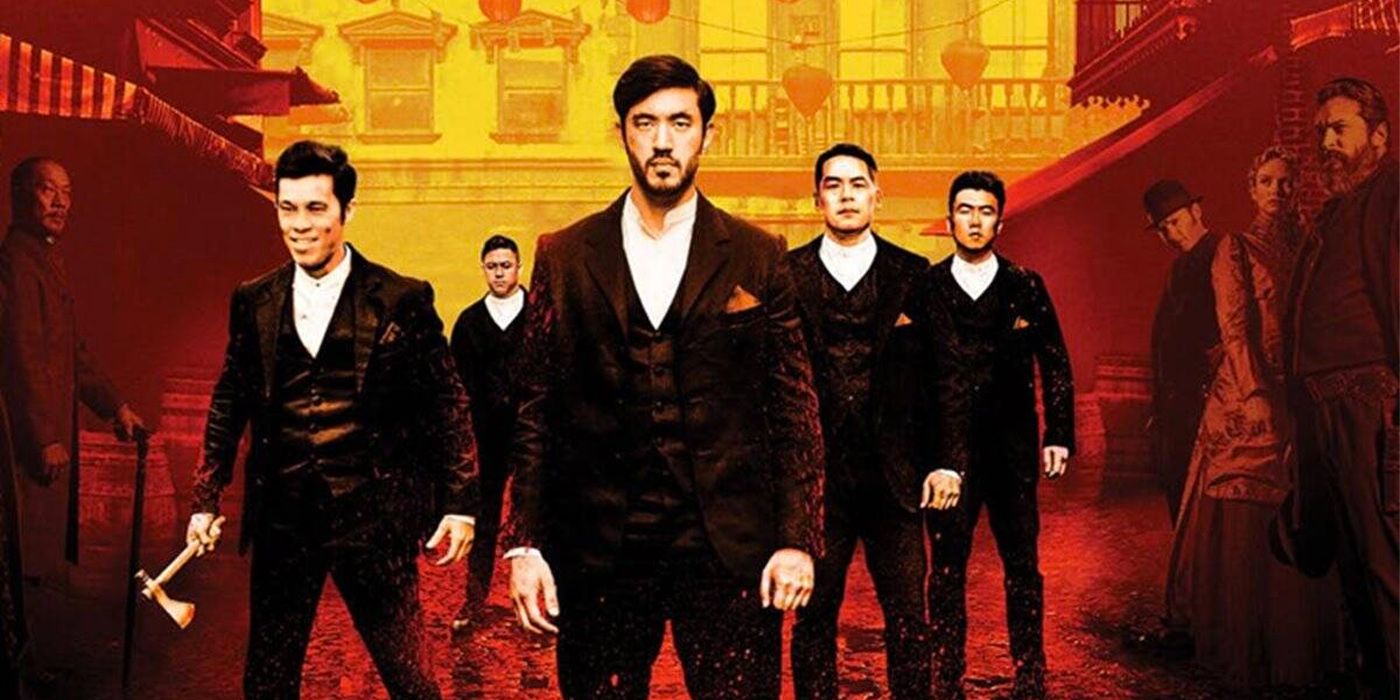There has been no shortage of excellent TV offerings in 2020, and due to the sheer volume of shows available, several noteworthy series were underrated following their release. The global pandemic has drastically changed everyday life for people around the world, and the increased time spent at home indoors has meant more time in front of screens. As a result, many are more up to date with current television than ever before — but some shows may have been unfairly overlooked because of their critical reception (or other factors).
With so much to choose from in the television landscape, there are inevitably some series that get missed. The emergence of streaming services means that some shows suffer from limited exposure, either because they are only available through less popular platforms, like DC Universe and the divisive Apple TV, or because, for whatever reason, the service doesn't promote the show to its subscribers. In the case of network television, a show can fail because of a poor time slot. Often times, shows end prematurely because of such factors, only to be remembered retrospectively as truly great series.
There are various reasons why a show may be underrated; critical reviews are subjective, and what one person views as a fault could be seen as appealing by another. Sometimes expectations for a new series, or a follow-up season of an existing TV show, are so high that the end product feels underwhelming, despite being excellent television. It's easy to forget that early seasons of now-revered programs like Star Trek: The Next Generation struggled initially because they were so bogged down by comparisons to what came before. In some rare cases, a show is underrated simply because it's misunderstood, or the timing of its release hurt its reception. One of the downsides of streaming is that so many shows are released all at once, rather than weekly instalments — not every narrative is enjoyable when binged.
Tales From The Loop
Tales From The Loop has impressive special effects, an instantly-recognizable aesthetic, and genuinely compelling content — yet, the series is unlikely to get a second season. An Amazon Prime original, Tales From The Loop debuted in April 2020, and — perhaps because of global ennui caused by COVID-19 — received mixed reviews. Like Stranger Things, Tales From The Loop is set in the 1980s and centers on a small American town with a mysterious scientific facility, commonly referred to as "the Loop." Its stories are told from the perspective of children, who are encounter strange and wonderful technology created by the facility.
Tales From The Loop is an upsetting series; the whimsy inherent in its subject matter is often overshadowed by an almost nihilistic approach to sci-fi, and the aesthetic somehow makes small town Ohio in broad daylight appear dim and muted. Its pathos is presented as a dull ache rather than grand melodramatic events, and as a result, some reviewers complained the show left them feeling confused, sad or even bored. Tales From The Loop is based on a retrofuturism book (and role-playing game) by Swedish artist Simon Stålenhag, and, despite its Ohio setting, the Amazon Prime series channels the distinctly-Swedish flavor of the source material through its quiet, contemplative approach to an alternative '80s.
Yet, there is an undeniable beauty at the core of Tales From The Loop. The series refuses to shy away from hard truths, allowing for its child characters to experience real, even fatal, repercussions for playing with technology they do not understand. People die or experience great loss, but these moments serve as a reminder to appreciate the ephemeral for what it is. The tragic moments resonate because the characters are not just likeable, but fully-realized; the family relationships are complicated, no one is perfect, but everyone is sympathetic. Even in the darkest moments of the series, there is a glimmer of light, hope, and love. The drab quality of the series as a whole serves to emphasize those rare, fleeting moments of joy and wonder — whether its the image of young Cole taking photographs in the brightly lit field while his grandmother looks on fondly, or Ethan and May falling in love while the rest of the world is frozen. Tales From The Loop will be remembered as one of the best sci-fi series of the decade — it just needs time.
His Dark Materials
The BBC One and HBO series His Dark Materials is based on the Phillip Pullman novel trilogy of the same name. It's a rich fantasy series that deals with multiple realities, extraordinary creatures, and a conspiracy that threatens the lives of beings across worlds. Its second season concluded on December 20, 2020 (UK) and it is easily one of the most under-appreciated series of 2020.
Reviews for His Dark Materials have been mainly positive, but not to the extent the smartly-written high-budget TV series deserves. When the show debuted in 2019, critics complained that the show's pacing was too slow, that it wasn't as whimsical or fun as it should be, and, in the words of Allison Shoemaker, that the world-building came "at the expense of the characters as well as the plot" (RogerEbert). While many have since come around — RadioTimes summed up the second season as "a masterpiece of delayed gratification" — those early reviews still haunt His Dark Materials.
His Dark Materials is a fantasy series worth investing in. It's often unfairly compared to Game of Thrones, but it's nothing like that — His Dark Materials is tonally distinct, balancing its religious themes and magical creatures with moments of emotional development for its characters. The world building is incredible and source material's lore is well observed. While it does deviate from Pullman's books, the changes are positive, taking into account the different needs of its medium and making the series a companion to the books. The performances are great, and the gripping story that propels the action in season 2 makes audiences care about the characters and their journeys.
Chilling Adventures of Sabrina
Across the river from Riverdale, Netflix's Chilling Adventures of Sabrina proved itself as the better of the two Archie Comics adaptations on TV at the moment. Season 3 was dark, funny and rich in imagination —from the opening episode that took Sabrina and her friends on a tour through Hell, to an ambitious finale that featured a time loop and a trip to an apocalyptic future. Kiernan Shipka leads the cast as Sabrina, the teenage witch who was previously revealed to be the daughter of the devil himself, and now has to deal with the aftermath of defeating her father and the impact it had on his former kingdom.
One of the most praiseworthy aspects of Sabrina is that there are no easy answers or neat solutions, and every victory seems to create more problems down the road. Chilling Adventures of Sabrina season 2 concluded with a "girl power" moment of establishing a Queen of Hell in Lucifer's old place and devoting the Church of Night's worship towards her. In season 3, however, Madame Satan's claim to the throne is challenged, the Church of Night has to fend off questions from the overwhelmingly patriarchal larger power structure of witches and warlocks, and the instability in Hell creates an opening for a cult of pagans to move into town.
It might be called a guilty pleasure, but there's no doubt that Chilling Adventures of Sabrina is a pleasure. From its gleeful embrace of the dark and gory to the outstanding set design and costumes, this is easily one of the best original TV shows that Netflix has to offer.
Space Force
The Netflix light-hearted comedy Space Force debuted in May 2020 to mixed reviews, with critics complaining that the Steve Carell project was underwhelming. Yet, the star-studden satire was undoubtedly funny — the odd couple dynamic between Carrell's General Mark R. Naird, an uptight and by-the-books military man, and John Malkovich's sardonic senior scientist Dr. Adrian Mallory, was endlessly amusing, made all the more appealing by the two reluctantly allowing their friendship to blossom.
The show is based on the real life Space Force that was founded in 2019, and pokes fun at the absurdity of establishing a military arm to "protect" Americans this early in the development of space flight technology — but rather than take its events to the extreme, or savaging mocking those involved in the project, Space Force approaches its subject kindly, allowing fondness for the characters to shine through the mockery. More importantly, Space Force season 1 had a clear positive message, arguing that it is possible to put aside one's differences and find common ground. Unlike many satires with a political bent, Space Force manages to criticize its subject-matter while still making its characters genuinely likeable — and it avoids the trappings of cynicism and condescension common in this genre.
Space Force suffered from sky-high expectations. In addition to Carrell and Malkovich, the show's cast included comedy icons Ben Schwartz, Lisa Kudrow, and even the late legendary funny-man (and military veteran) Fred Willard in his final acting role. The show's mixed reviews reflect critics approaching the Netflix series with a set of assumptions, particularly the frequent comparisons to The Office and Veep; however, Space Force is its own thing, and is worth watching and appreciating for what it does offer: a charming workplace comedy.
The Vow
The HBO documentary series The Vow is a deep-dive into the inner workings of the infamous organization NXIVM and its enigmatic leader Keith Raniere. Although the series received generally favorable reviews, some critics were particularly harsh with their criticism, dismissing the series as repetitive, uninteresting, and poorly-paced — with The A.V. Club reviewer Ashley Ray-Harris arguing that viewers will feel that The Vow "wasted nine hours" of their lives.
But the beauty in The Vow, and what sets it apart from most other documentary series dealing with true crime stories or infamous cults, is that the series is more concerned with humanizing the real people involved in the story, rather than reviewing the heinous acts of its villain and exploiting the plight of his victims for sensationalist thrills. Those looking to be titillated by the horrid details of Raniere's crimes will be disappointed, but — given how high profile his "sex cult" crimes are in the news — what The Vow offers is significantly better.
Over nine episodes, The Vow offers a gentle perspective on NXIVM, showing how everyday intelligent and successful people found themselves trapped in Raniere's web. The documentary series acknowledges the common public attitude that people who join cults are deeply flawed or foolish. At one point the series shows a woman tell a NXIVM survivor that she "would never" get sucked into a "cult" like the victim did — but of course, The Vow argues the opposite: it could happen to anyone.
Warrior
Of every title on this list, Warrior may be the most underrated — and the most deserving of reconsideration. The Cinemax original series is a martial arts period drama that combines exhilarating fight sequences with a complex, multifaceted story about racism, classism, and sexism in late 19th-century San Francisco. Warrior is set during the Tong wars, a real life event that shaped the lives of many Chinese immigrants during this time period. The characters are rich and interesting, and the story resists reducing conflicts down to the "good" side versus the "bad" — although the politicians are easily the show's closest thing to villains.
Warrior is full of interesting stylistic choices. The Chinese characters aren't weighed down by stereotypical accents, nor is the dialogue dependent on subtitles (the show has its own way of signifying Cantonese speech). The show is immensely entertaining, the situations are believable, and characters from various factions are sympathetic, even when acting against the interests of the show's protagonist Ah Sahm (played by Andrew Koji). Despite the martial arts element, this show isn't a pulpy action adventure like Into The Badlands — something the marketing, which often leans into Warrior's Bruce Lee connection, failed to communicate. Those tuning in for a fast-paced and straight-forward narrative were likely impatient with Warrior's complicated narrative structure, while those who are turned off by mindless action were encouraged to skip the show entirely, missing out on a rich period drama.
Currently, there are no plans to continue Warrior past season 2, since Cinemax is no longer producing original content. Warrior season 3 is still a possibility, however: if the show does well on HBO Max, the streaming platform may pick up the series for an additional season. Warrior has a following, and with better exposure, it could grow significantly. Netflix and Amazon Prime have demonstrated the viability or reviving cancelled series from small platforms or channels, and building the show's fanbase through better exposure.

